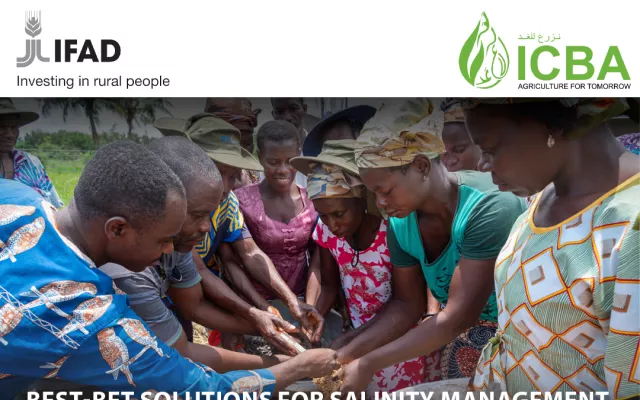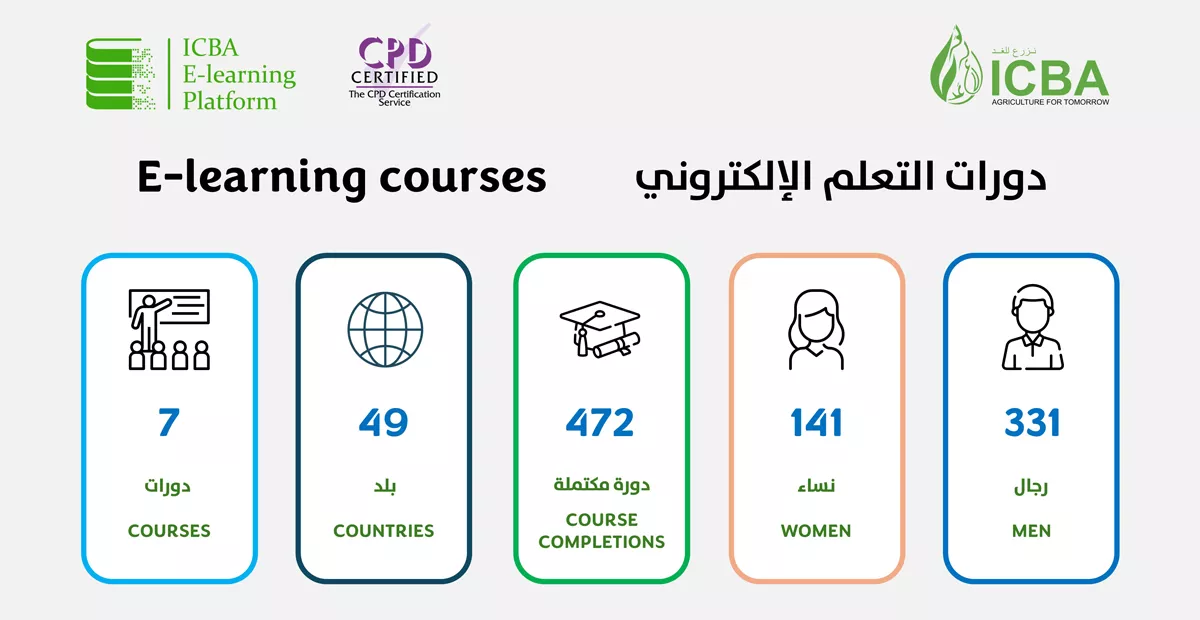ICBA’s e-learning courses benefit learners from 49 countries
24 January 2024
As climate change continues to place pressure on already fragile agrifood systems, the need for professionals and students alike to have a deep understanding of land management, crop diversification, value chain, and climate change modeling and adaptation, among other things, is critical. It is in this context that the International Center for Biosaline Agriculture’s (ICBA) suite of e-learning courses has achieved remarkable success.
Aimed at providing courses to professionals, specialists, extension officers, and students in a range of subjects like land and water management, soil biodiversity, the platform saw a significant uptake in enrolment since its establishment in 2022. Over 470 course completions were registered by learners from 49 countries, including Australia, Egypt, Kenya, Morocco, Nigeria, Pakistan, Tunisia, and the UAE. Women represented 30 percent of the graduates who received an ICBA e-certificate upon completion. The courses offer comprehensive curricula covering the latest techniques and strategies in land management, biosaline agriculture, the impact of climate change on arid regions, value chain, alternative crops for degraded land, irrigation management and other areas.
Dr. Charbel Tarraf, Chief Operations and Development at ICBA, said: “The e-learning platform is an integral part of our capacity development offerings. Its purpose is to cater to the knowledge needs of stakeholders in different regions and expand the reach and impact of our knowledge transfer efforts. We are committed to building on this success by developing new courses and diversifying topics.”
The e-learning courses are part of ICBA’s commitment to providing accessible, high-quality education to individuals and organizations worldwide. The seven courses offered on ICBA’s e-learning platform include:
- Climate and Biosaline Agriculture
- Climate Change and Impacts on the Arid Regions
- Integrated Land Management in the United Arab Emirates
- Water Resources and Irrigation Management Systems in Arid Regions
- Integrated Agri-aquaculture Systems in Marginal Environments
- Alternative Crops for Degraded Lands in the UAE
- Agricultural Value Chain
One of the key factors behind the success of the e-learning courses is the quality of their content, which has been developed by ICBA’s scientists and experienced consultants who are leading experts in their respective fields. All courses are accredited by the Continuing Professional Development (CPD) Certification Service, the UK.
Many students reported significant improvements in their knowledge and skills following the completion of a course, along with a deeper understanding of the challenges facing food systems and how to think critically about addressing these issues.
Mr. Ayoub El Mouttaqi, a learner from Morocco, said: “Biosaline agriculture is a fascinating field that addresses the challenges of cultivating crops in saline or waterlogged conditions, which are prevalent in many regions around the world. This training will equip us with valuable knowledge and techniques to promote sustainable agriculture in such environments.”
Participants also praised the e-learning portal for its high-quality education that is improving capacity development and supporting efforts to solve the climate crisis.
Ms. Lateefa Aljallaf, a participant from the UAE, said: “[The course] reinforced the knowledge that I already had about the topic which I didn’t have a strong understanding of previously.”
The center aims to develop more courses in agriculture and related fields in collaboration with different partners to meet the growing demand for online education.










